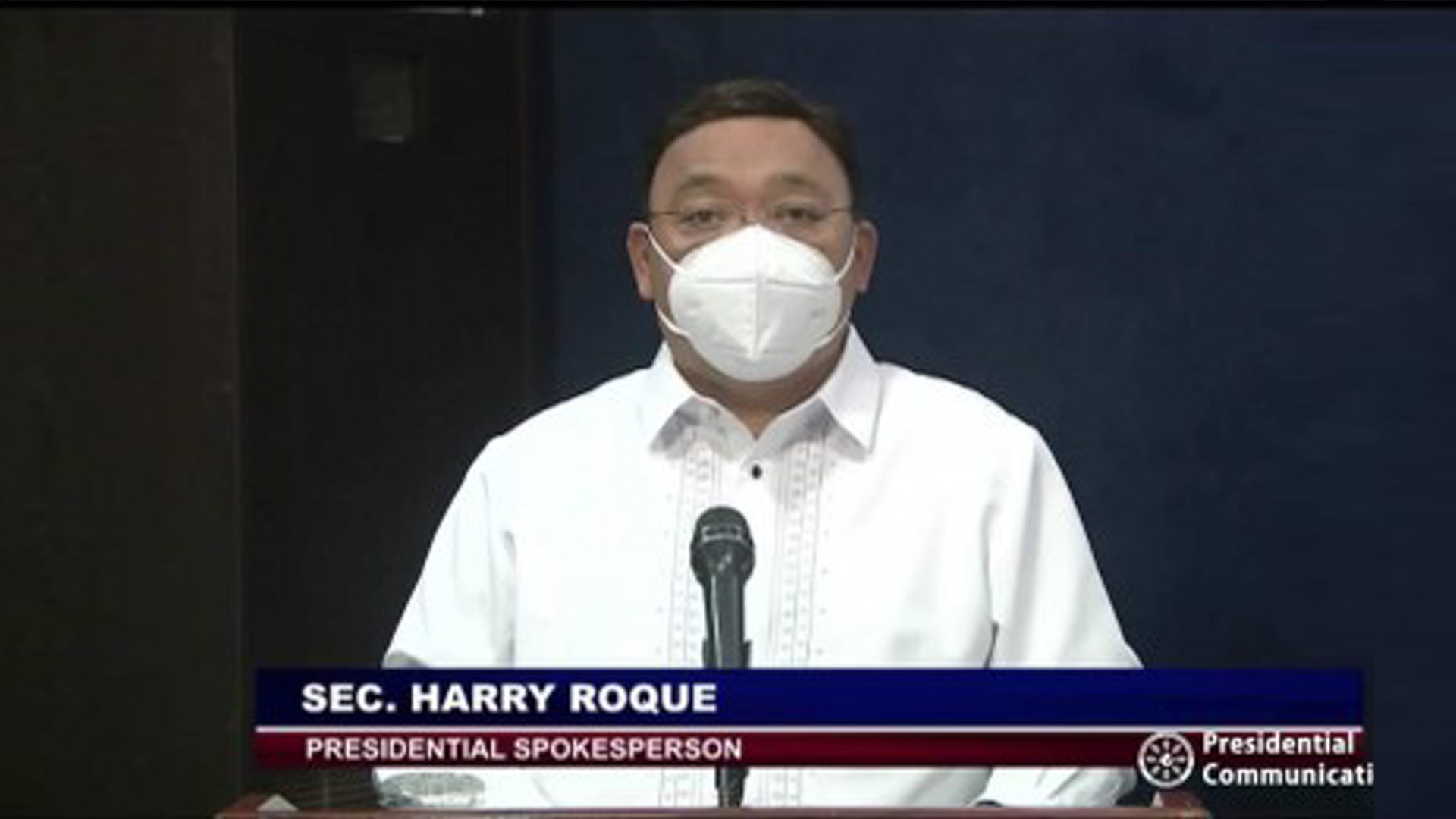All residents living in areas under modified general community quarantine (MGCQ) will be allowed to leave their homes as long as they observe minimum health standards, Malacañang said on Monday.
Minimum public health standards refer to guidelines set by the Department of Health (DOH) and sector-relevant guidelines issued by the government agencies to aid all sectors in implementing non-pharmaceutical interventions to reduce transmission of coronavirus disease 2019 (Covid-19).
Presidential Spokesperson Harry Roque said Resolution No. 41 of the Inter-Agency Task Force for the Management of Emerging Infectious Diseases (IATF-EID) allows everyone to leave their homes provided they wear face masks and practice physical distancing among other health and safety precautions.
“Sa modified GCQ po, 100 percent pupuwede pero siyempre po ingat pa rin (Under MGCQ, 100 percent of the population will be allowed outside but of course, they should still be careful),” Roque said in a virtual presser.
He said the elderly, those with immunodeficiency, comorbidities, or other health risks, pregnant women, and the youth are still prohibited from going out in areas under general community quarantine (GCQ).
Under the omnibus guidelines on the community quarantine in the country, senior citizens who form part of the essential workforce of industries or offices that are allowed to operate, may also go out and work, even in areas under the most stringent enhanced community quarantine (ECQ).
“Iyon nga palang mga seniors baka magreklamo na naman ‘no. Iyong same rule po nandiyan pa rin: Puwede kayong lumabas kung mayroon po kayong kinakailangang bilhin na indispensable; at kung kayo po ay nagtatrabaho (For seniors that complain about restrictions, the same rule applies. You can go out if you have something to buy that is indispensable; and if you are working),” Roque said.
As for government work in areas under MGCQ, Roque said agencies and offices will operate in full capacity including physical work but alternative work arrangements should be offered for those over 59 years.
Agencies and offices will operate in full capacity in areas under GCQ, but with alternative work arrangements for their personnel, he added.
Areas placed under GCQ from June 1 to 15 are Pangasinan; Region 2 (Cagayan Valley); 3 (Central Luzon); 4-A (Calabarzon); Metro Manila, including Pateros; Region 7 (Central Visayas); Zamboanga City; and Davao City.
The rest of the country is under less strict MGCQ.
Roque said the regional IATF team will monitor their respective areas’ health system performance capacity, strict compliance to surveillance, and isolation and treatment protocols.
Although Cebu City, which forms part of Central Visayas, is currently under GCQ, Roque said their local government officials should submit a detailed zoning plan for priority barangays at risk of Covid-19 infection.
Citing protocols by the Joint Task Force Covid Shield, Roque said travel authority is not required for Authorized Person Outside Residence (APOR). All they have to do is bring their company identification (ID) and certificate of employment (COE).
Travel authority is not required for medical and family emergencies and travels within the province or travel within Metro Manila.
However, travel authority is required for people traveling to another province.
Those who have no travel authority will be barred from passing the police and solider-manned quarantine control points (QCPs). (PNA)








